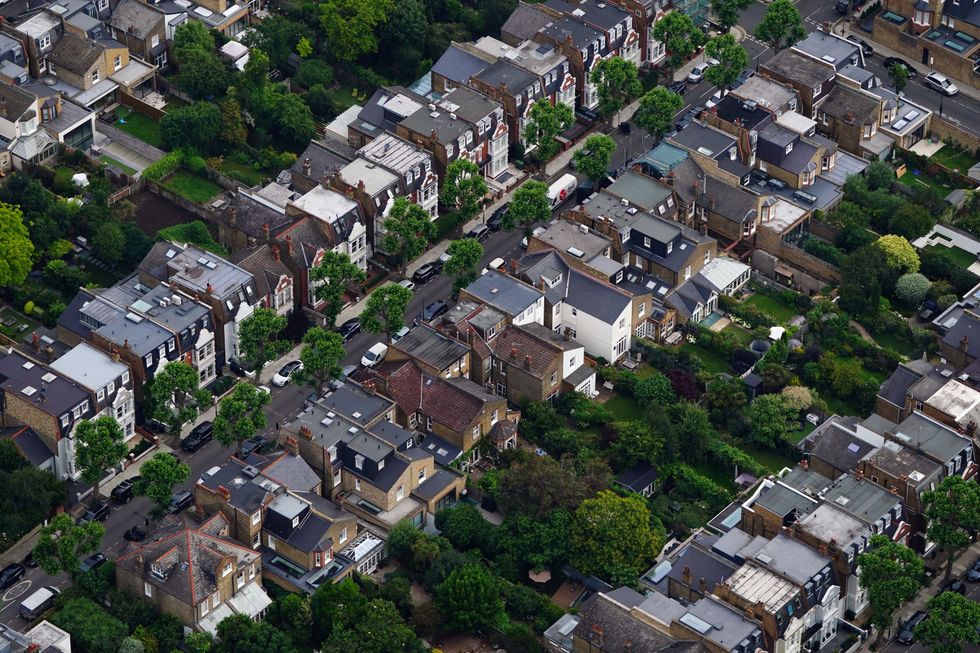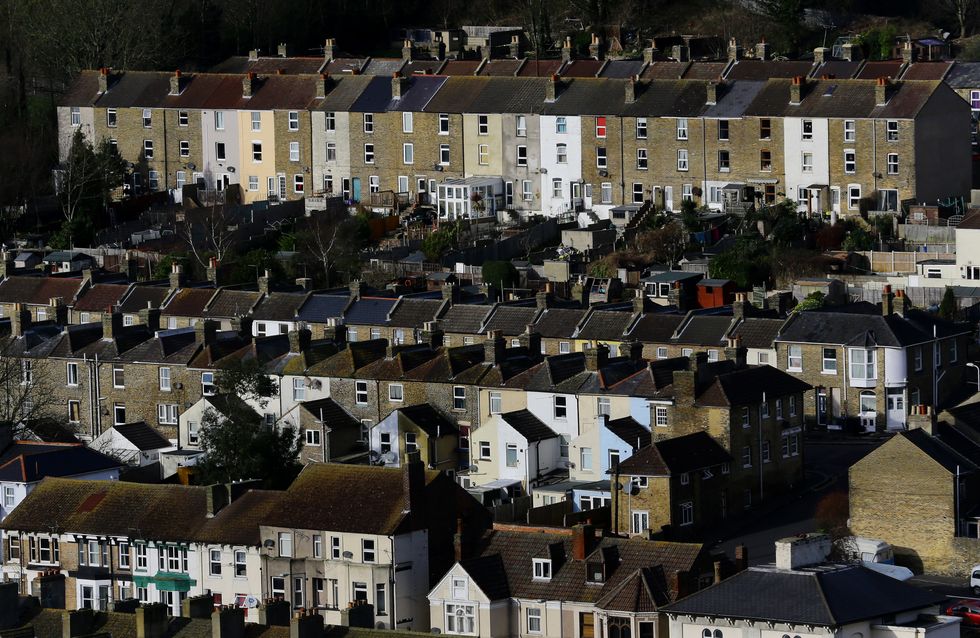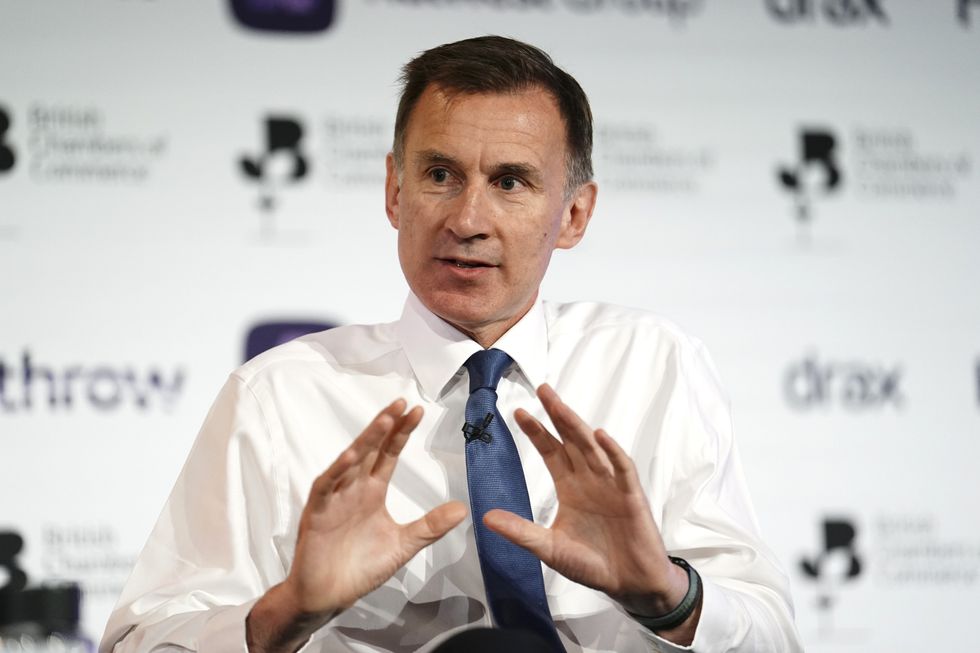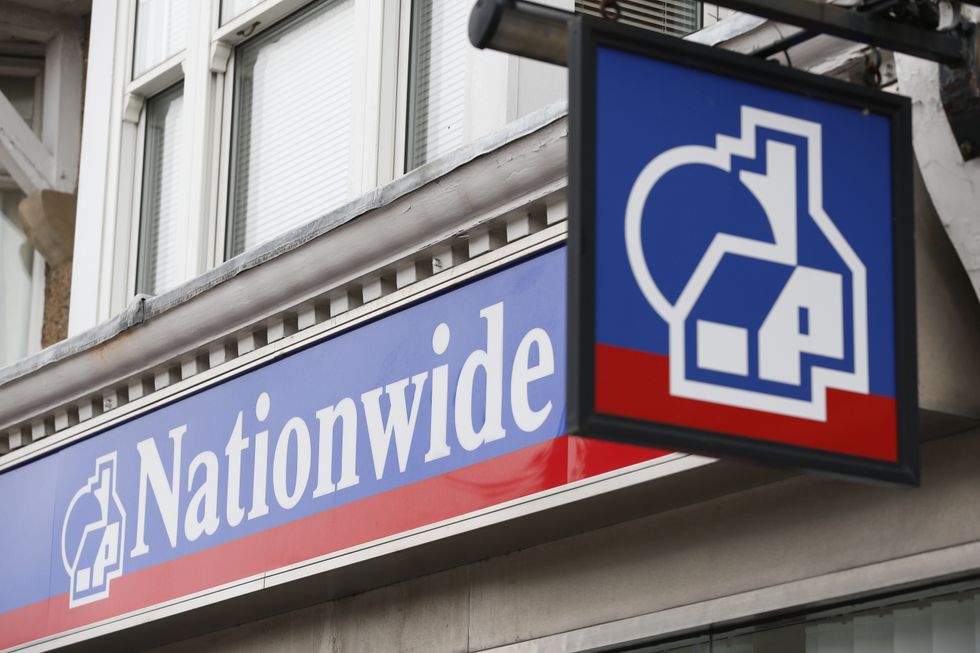Building society Nationwide has raised its cheapest two-year fixed rate to 5.74 per cent while as many as three million middle class homeowners risk splashing all their savings on surging mortgage costs.
Nationwide hiked its rate from 5.19 per cent, adding £828 a year to a £200,000 mortgage.
The average two-year fixed rate now stands at 5.92 per cent, financial data analysts at Moneyfacts have revealed.
The average five-year fixed rate is now as high as 5.26 per cent.
 Mortgage rates could increase further as the Bank of England is set to hike interest ratesPA
Mortgage rates could increase further as the Bank of England is set to hike interest ratesPALewis Shaw, founder of the mortgage broker Riverside Mortgages, said: “Unfortunately this is a sign of the times and we’re unlikely to see mortgage rates coming back down anytime soon.
“We’re rapidly approaching a tipping point and without political intervention things could get very bad very quickly.”
The proportion of incomes spent on mortgage repayments continues to soar as rates surge.
The figure could hit the highest figure since 1991 at 23.6 per cent if mortgage rates hit six per cent.
As many as three million middle-class homeowners now risk having their savings wiped out by increasing mortgage costs.

Britons could be forced to wipe out their savings to cover mortgage repayments
PAAnalysis from the Institute for Fiscal Studies found that 2.9million middle income mortgage holders could dip into savings pots to off-set an unexpected expense of around £2,000.
Bee Boileau, an economist at the IFS, said: “It’s likely that this group will struggle with increases in mortgage costs.”
However, the Chancellor of the Exchequer rejected calls to assist mortgage borrowers amid the ongoing crisis.
Jeremy Hunt said: “In the end, there is no alternative to bringing down inflation. Jeremy HuntPA
Jeremy HuntPA“We have to do everything we can as a government, as a country, to support the Bank of England in their mission to squeeze inflation out of the system.”
Lenders could continue to increase rates as the Bank of England grapples with higher-than-expected inflation.
The Bank of England is poised to hike interest rates to 4.75 per cent in its thirteenth consecutive increase.
The figure hit five per cent during the height of the 2008 financial crash.
Traders anticipate the base rate to peak at 5.5 per cent by the end of the year.

Nationwide's fixed mortage rate is teetering towards six per cent
PAThe base interest rate was as low as 0.1 per cent in late 2020 and early 2021.
Inflation held firm at 8.7 per cent in April, down from 10.1 per cent in March.
It peaked last October at 11.1 per cent, the highest figure since Britain was crippled by stagflation in 1978.
A Nationwide spokesperson said: “With the continued upward trajectory of swap rates in recent times and lenders across the market increasing rates, we are having to make some increases across our fixed rate mortgage range.”
They added: “These changes are in line with the movement in swap rates and ensure that, as a building society, we can continue lending to all types of borrowers. Despite the changes in rates, our full mortgage range continues to remain available.”
https://news.google.com/rss/articles/CBMiVGh0dHBzOi8vd3d3LmdibmV3cy5jb20vbW9uZXkvbmF0aW9ud2lkZS1tb3J0Z2FnZS1yYXRlcy1zYXZpbmdzLWludGVyZXN0LXJhdGVzLWxhdGVzdNIBAA?oc=5
2023-06-16 07:38:34Z
2139584788
Tidak ada komentar:
Posting Komentar